Before WW1 my great uncle was a handsome man with a young family - two sons and a daughter.
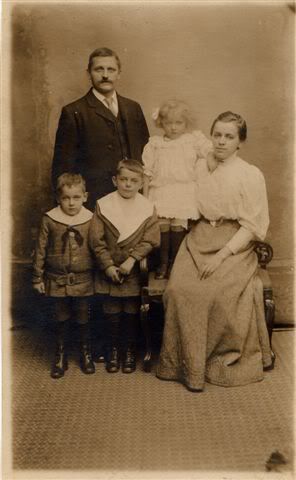
He was a simple baker in a London suburb. But his German wife was in Germany with their daughter when the war broke out, and his shop was smashed up and he and his sons imprisoned in Knockaloe Alien Internment Camp offshore on the Isle of Man. He had been in Britain for more than 10 years.
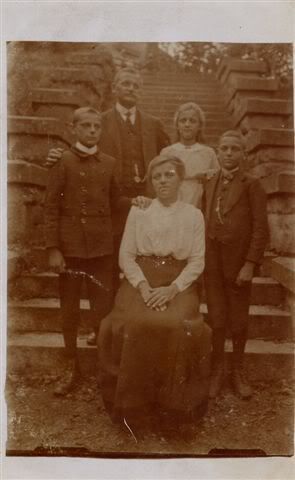
(Sorry, the following two pictures of the camp don't display fully because of the blog layout).
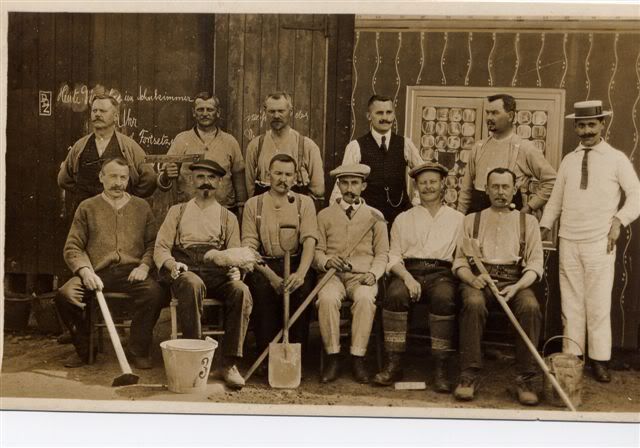
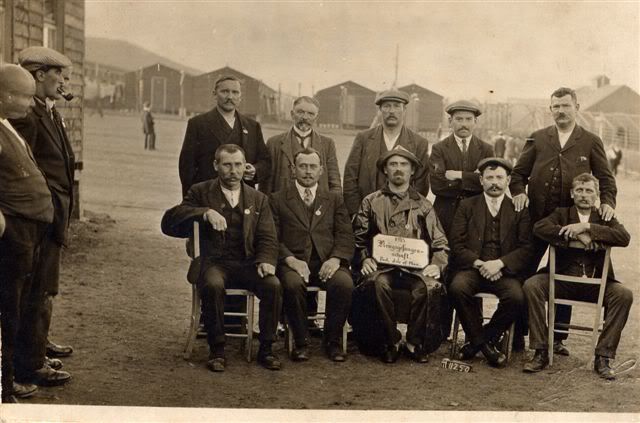
The camps were made up of hundreds of huts and were concentration camps by any other name, it's just that the people in them were not starved or exterminated. Having British-born sons fighting for the British army was no protection against internment. Women were not interned, but repatriated to a country they may never have visited and whose language they did not speak.
My grandfather escaped internment because he had become an invaluable member of his community. His baker's oven was used by locals to cook their Sunday joints of meat. He had also been in Britain much longer than his brother, though their wives were aunt and niece.
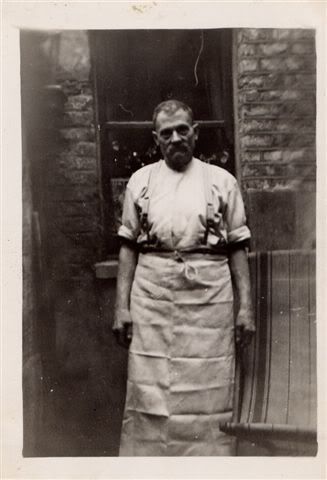
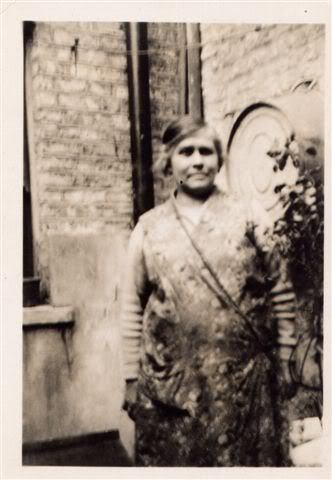
My father, the youngest member of the family, was persecuted, by being kept down in the same class in school for the duration of the war. Meanwhile, his two eldest brothers were fighting for Britain in Salonika.
The camps were used in WW2 as well, and even Jews fleeing from Hitler's oppression were suspected of being infiltrators and interned. Britain had no Japanese community worth mentioning, but given the terrible treatment of PoWs by the Japanese (who regarded being taken captive as shameful and would therefore fight to the death or commit suicide rather than being captured, and treated their "cowardly" captives as worthless) those who have survived to see the rehabilitation of the Japanese still cannot forgive.
So just because the US interned their Japanese citizens and not their German ones does not make their actions racist in the same way as the treatment of blacks in the south, or Arab-looking people anywhere.
And things really are different at a time of serious, genuine conflict, such as the two wars that tore the world apart in the 20th century.
4 comments:
Thanks, Val. I never new that Germans had been so presecuted in England, in either war. Bitter American POWs/GIs often came back from WWII complaining that while imprisoned by the Nazis, they noticed that Germans often treated the British prisoners better, often sharing cigarettes and a badly translated joke here and there.
In my own experience, I knew an old German deli owner in Jamaica Plain where I frew up--a municipality of Boston--Mr. Braun who told me and my mother how badly he was treated by many one-time good customers. Even one of the priests at the local Catholic church--now closed and converted into condos to pay for Boston's priest molestation scandals--began spreading a rumor that Mr. Braun had a shortwave radio in the basement of his shop where he would disseminate vital secrets to the Fatherland...you know, those highly classified tidbits like what Americans in the Northeast were paying for a pound of ham in those days, or how thinly they had their bologna sliced!
I believe I remember these amazing photographs and most of the story from your blog, if I'm not mistaken. But thanks so much for sharing and posting them here, as well.
Wonderful touching personal accounts. Especially ironic given that the British Royalty were German, and until WWI at least their court chaplain was Lutheran.
I'm not quite sure I understand your statement
So just because the US interned their Japanese citizens and not their German ones does not make their actions racist in the same way as the treatment of blacks in the south, or Arab-looking people anywhere.
Asians in America were subjected to severe racism even before WWII. German Americans didn't get as much of it, and they didn't get sent to concentration camps.
But no, I don't think demonizing an entire people is ever acceptable. Whether one calls the treatment of Germans in England or Japan "racist" matters nothing to me. What ever you call it, it was wrong, and it was xenophobic.
I believe in ethical absolutes, and just as what the Nazis did to the Jews and many others is evil without any mitigation, so too is treating a whole mass of innocent people as criminals. Either Habeaus corpus means something, or it doesn't. The Constitution is either the rule of our land, or it isn't.
Beyond that though is the whole issue of xenophobia itself, whether or not it expresses itself by cooping a country's legal system.
Rather than emphasizing our differences and ostracizing, mistreating and abusing people differ with us in some select detail[s], we should START with emphasizing our common humanity, and do unto ALL others as we would have them do unto us.
to me than the dehumanizing and demonizing of them
My great grandfather was interned at Knockaloe and his English wife and 3 children were repatriated to Germany, a land they had never visited before. I still have a letter he wrote from the camp to his 6 year old son (my grandfather) in 1918.
Post a Comment